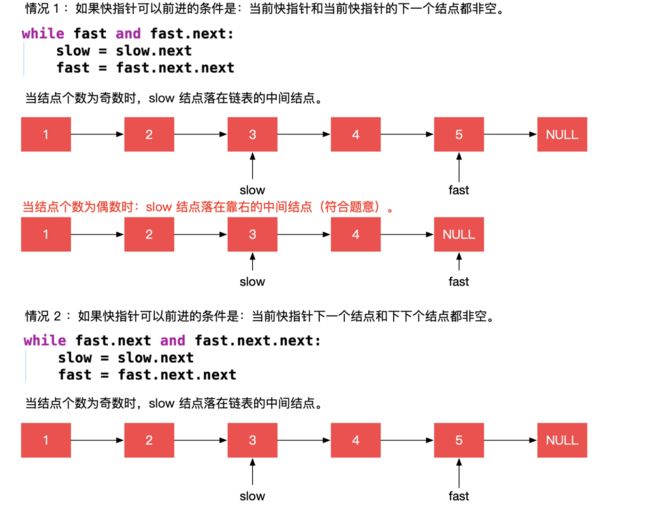- 基础算法之贪心算法
青春好少年!
基础算法贪心算法算法c++排序算法
一·基本概念贪心算法是指在问题求解时,做出当前的最好选择。就是,不从整体最优考虑,只是从局部最优解。贪心算法没有固定的算法框架,算法设计关键在于贪心的选择。注意,贪心的策略一定要具备无后效性,指一个状态的过程不会影响之前的,只和当前有关。二·基本思路1.建立数学模型2.分解子问题3.求解子问题,使子问题局部最优4.将子问题合并三·适用问题贪心策略的前提是:局部最优能导致全局最优。例1:【深基12.
- 贪心算法之区间选点问题
阿贾克斯的黎明
java贪心算法算法
目录贪心算法之区间选点问题1.区间选点问题概述2.基本区间选点问题的贪心策略(1)策略思路(2)具体示例3.区间选点问题变体及处理(1)变体描述(2)贪心策略调整(3)示例演示4.Java实现代码及解释(1)定义区间类(2)贪心算法实现(3)代码解释5.性能优化(1)当前实现的性能问题(2)树状数组优化思路(3)示例代码片段(树状数组相关操作)(4)优化后的性能分析6.总结与展望(1)区间选点问题
- 【前端开发】前端开发深度解析:HTML、CSS、JavaScript与Vue.js
RS迷途小书童
前端开发探索之旅javascripthtmlcss前端vue.js
一、HTML:构建网页的基石1.1简介HTML(HyperTextMarkupLanguage,超文本标记语言)是一种用于创建网页的标准标记语言。它使用各种标签(tags)来描述网页上的内容,包括文本、图像、链接、视频、音频等。HTML是网页开发的基础,与CSS(层叠样式表)和JavaScript等技术一起,共同构建出丰富多彩的网页世界。HTML文档由一系列的元素构成,每个元素都由开始标签、内容和
- 2025年美赛数学建模 MCM 问题 B:可持续旅游管理 详细解析和代码(持续更新中,matlab和python代码,2025美赛)
2025年数学建模美赛
2025年美赛MCM/ICM数学建模matlab2025年数学建模美赛B题可持续旅游管理2025美赛2025
目录问题一:1.模型概述1.1主要因素1.2约束条件2.模型的构建2.1变量与函数定义2.2目标函数2.3额外收入支出计划3.敏感性分析4.Python代码实现5.结果与建议MATLAB代码实现解释问题二:1.如何适应不同旅游目的地的模型:a.游客消费模式和收入:b.游客数量与收入关系的调整:c.环境影响和保护成本:d.社会成本:2.平衡吸引力较少的景点和位置:a.优化游客分布:b.定价和激励措施
- 设计一个带有过期时间的缓存系统
专业WP网站开发-Joyous
工具学习缓存
缓存是提高系统性能的重要机制,尤其是在高并发和高流量的场景下,缓存能够有效地减少对数据库或远程服务的访问,从而降低响应时间和系统负载。然而,随着数据的不断变化,缓存中的数据可能会变得过时,因此我们需要一个带有过期时间(TTL,TimetoLive)的缓存系统。在本文中,我们将介绍如何设计一个简单的带有过期时间的缓存系统,并使用Java编程语言来实现这一功能。我们将讨论缓存的核心概念、过期策略以及实
- 贪心算法
DeeGLMath
ACM算法贪心算法算法
文章目录贪心算法及练习题1.爱与愁的心痛2.凌乱的yyy/线段覆盖3.[NOIP2004提高组]合并果子/[USACO06NOV]FenceRepairG4.[NOIP2010普及组]接水问题5.[THUPC2017]玩游戏6.考验7.[JOI2020Final]JJOOII2贪心算法及练习题简介:贪心算法(英语:greedyalgorithm),是用计算机来模拟一个“贪心”的人做出决策的过程。这
- Mac上Flutter开发环境搭建
Coder Leo Wang
MobileAppflutter
安装DartSDKbrewtapdart-lang/dartbrewinstalldart配置VSCode安装Dart、CodeRunner插件下载FlutterSDK解压FlutterSDK压缩包到目标路径配置flutter的PATH环境变量比如我的,在.zshrc文件中增加下面一行:exportPATH="$PATH:/Users/wlm/workspace/development/flutt
- Vue2.0——组件动态加载 <keep-alive>
致可乐
笔记
文章目录一、动态切换组件1.使用组件标签component的is属性来动态切换组件2.使用keep-alive缓存之前的状态一、动态切换组件1.使用组件标签component的is属性来动态切换组件Keep.vue:在它里面挂载两个页面组件keepOne,keepTwokeepOnekeepTwo<
- 区间选点问题-贪心算法
godKK
c++贪心算法
问题:数轴上有n个闭区间[a_i,b_i]。取尽量少的点,使得每个区间内都至少有一个点(不同区间内含的点可以是同一个)input:第一行1个整数N(N#include#include#
- ubuntu调用图形化网络测试工具
hunter206206
网络ubuntu网络测试工具
在Ubuntu中,除了命令行工具外,还有一些图形化的网络测试工具可以帮助你更直观地测试和分析网络性能。以下是几款常用的图形化网络测试工具及其使用方法:1.gnome-nettoolgnome-nettool是一个简单的图形化网络工具集,包含ping、traceroute、端口扫描等功能。安装:sudoaptupdatesudoaptinstallgnome-nettool使用:在应用程序菜单中搜索
- 商用车电子电气零部件电磁兼容条件和试验(20)—高压大电流注入传导抗干扰(HV-BCI)
零零刷
电磁兼容(EMC)试验汽车可用性测试压力测试功能测试安全性测试安全社交电子
写在前面本系列文章主要讲解商用车电子/电气零部件或系统的传导抗干扰、传导发射和辐射抗干扰、电场辐射发射以及静电放电等试验内容及要求,高压试验项目内容及要求。若有相关问题,欢迎评论沟通,共同进步。(*^▽^*)目录商用车电子电气零部件电磁兼容条件和试验—目录-CSDN博客10.高压零部件试验项目10.9高压大电流注入传导抗干扰(HV-BCI)10.9.1参考标准本部分参考ISO11452-4标准制定
- 贪心算法----区间选点问题(POJ1201)
苦茶子12138
贪心算法java算法
题目:正在上传…重新上传取消题目的大致意思是,给定n个闭区间,并且这个闭区间上的点都是整数,现在要求你使用最少的点来覆盖这些区间并且每个区间的覆盖的点的数量满足输入的要求点覆盖区间的数量。输入:第一行输入n,代表n个区间。接下来的n行每行的第一个数代表区间起点,第二个数代表区间终点,第三个数代表这个区间必须要选取的点的数量。输出:输出最少的点的数量,这些最少的点要覆盖全部区间。这个题是区间选点问题
- js第一次笔记
chen_zhi_yu
javascript笔记前端
JavaScript显示方案JavaScript能够以不同方式“显示”数据:使用window.alert()写入警告框使用document.write()写入HTML输出使用innerHTML写入HTML元素使用console.log()写入浏览器控制台JavaScript关键词JavaScript语句常常通过某个关键词来标识需要执行的JavaScript动作。下面的表格列出了一部分将在教程中学到
- 贪心:P1090 合并果子 / [USACO06NOV] Fence Repair G(洛谷)
736我最帅
贪心算法c++贪心算法
本题对c++党来说有个福利STL里的优先队列:priority_queue具体用法参考以下链接:priority_queue本题链接#includeusingnamespacestd;intn,ans=0;priority_queue,greater>q;intmain(){cin>>n;for(inti=1;i>x;q.push(x);}while(q.size()>1){intx=q.top(
- 前端路由的hash模式和history模式
bsr1983
前端hashhistory路由模式
hash模式和history模式是前端路由实现的两种常见方式,分别基于不同的浏览器特性实现。下面从浏览器实现、前端框架实现及相关标准定义三个方面详细解释这两种模式。1.浏览器实现1.1Hash模式•核心机制:•基于浏览器的location.hash属性和hashchange事件。•#后的内容(如#home)被称为“fragmentidentifier”,不会被浏览器发送到服务器,因此只在前端有效。
- 单片机的时间轮询
路见不平先跑
单片机的时间片轮概括:利用定时器,让单片机在需要延迟的等待的状态下(按键检测消抖),依然执行接下来的程序。步骤:1.设置定时器中断->设置定时时间片(2ms,5ms,500ms)。
- 深入浅出之注意力机制(YOLO)
浩瀚之水_csdn
#深度学习基础知识深度学习目标检测YOLO目标检测专栏YOLO
一、基本概念注意力机制(AttentionMechanism)源于对人类视觉的研究。在认知科学中,由于信息处理的瓶颈,人类会选择性地关注所有信息的一部分,同时忽略其他可见的信息,这种机制被称为注意力机制。它主要有两个方面:一是决定需要关注输入的哪部分,二是分配有限的信息处理资源给重要的部分。该机制可以应用于任何类型的输入,而不管其形状如何。在计算能力有限的情况下,注意力机制是解决信息超载问题的主要
- 基于 WPF 平台实现成语游戏
code_shenbing
WPFwpf游戏c#
一、引言在软件开发领域,利用各种框架开发有趣的应用程序是提升技术能力和增加开发乐趣的有效方式。WPF(WindowsPresentationFoundation)作为微软强大的桌面应用开发框架,提供了丰富的图形和交互功能。本文将带领大家基于WPF平台实现一个成语游戏,不仅能让大家深入了解WPF的应用,还能通过实际项目锻炼编程能力。二、成语游戏功能设计(一)游戏规则本成语游戏采用常见的接龙规则,玩家
- 2025年,越是本地商家,越要做好推广
刀客Doc
网络
去年8月份在无锡的时候,我受邀参加一个餐饮行业的营销沙龙,大概有70多人的样子。沙龙上,我观察到一个很有意思的现象,越是成功的商家,投广意识越强。而经营遭困境的商家,营销方式越保守,投广意识越弱。从表面看,这是一个认知问题:一些商家偏于保守,认识不到广告对商业、对生意的正向作用。更深一层看,这还是一个实践问题:因为我发现,也有不少商家认识到了投广很重要,只是不知道怎么做。有个江阴做刀鱼面的老板说了
- C#连接MySQL操作详解
TechPr
c#mysqlandroidC#
C#连接MySQL操作详解在这篇文章中,我们将详细介绍如何使用C#连接和操作MySQL数据库。我们将提供完整的源代码和相应的描述,以帮助您更好地理解。步骤1:引用MySQLConnector/Net首先,您需要安装并引用MySQLConnector/Net,这是一个官方提供的用于在C#中连接MySQL数据库的库。您可以从MySQL官方网站上下载并安装这个驱动程序,然后在您的项目中添加对MySQLC
- 美团想做梯媒广告不容易
刀客Doc
大数据
作者:刀客doc继前几天国内第三大梯媒华语传媒宣布关停之后,沉寂已久的梯媒广告市场再次迎来大新闻。7月11日,有媒体报道称:美团要进入电梯广告市场。「美团计划在下沉城市招募电梯媒体广告加盟商(视频梯媒)。美团侧将提供设备和业务支持;加盟商侧负责铺设设备、销售和制作广告等事宜。」美团还列出对视频梯媒广告加盟商的具体要求:江南春发朋友圈解释:“我们和美团在一起推进低线城市电梯视频媒体运营合作,希望通过
- 前端一次性在接口中给后端传多个文件流的集合作为参数
柠檬花开_
前端javascript上传文件文件流
前端上传文件后,文件流暂存在数组中。保存时,接口传参多个文件流一、前端暂存文件流//上传附件,attachFiles前端暂存文件流为一个数组httpSuggestionRequest:function(param){console.log(param,'param')if(this.attachFiles.length===10){this.$message.error('上限10个文件!');r
- 取对象的指定属性组成一个新的对象;变更对象的key值组成新的属性值
柠檬花开_
object取字段值组成新的对象
//原始对象constoriginalObject={id:1,name:'Alice',age:30,city:'NewYork'};//提取原始对象的指定属性并重命名,key值保持原有的const{name,id}=originalObject;//组成新对象constnewObject={displayName,id};console.log(newObject);-->{"name":"A
- 东华发思特&巨杉数据库:打造智慧城市分布式大数据联合解决方案
巨杉数据库SequoiaDB
SequoiaDB巨杉数据库巨杉数据库sequoiadb东华发思特联合解决方案
合作伙伴公司简介东华发思特为东华软件旗下控股子公司,是一家通过高新技术企业认定的技术企业,拥有CMMI3、ISO27001、ISO9000、ISO20000等高级行业资质认证。公司组建了一批视野开拓、经验丰富的管理和研发团队,如今已打造了一系列新型智慧城市产品体系,以HarryData大数据中台和BobbyLink物联网中台为核心,以数字政府、数字文旅、数字乡村、城市精细化管理平台等为产业互联网助
- Android Service 启动流程
&岁月不待人&
Android新认知android
在早些年学习Android的时候,对Service有过总结,但是主要是如何去使用,注意事项,startService和bindService的区别。AndroidService_publicintonstartcommand(intentintent,intflags-CSDN博客但是今天从源码来总结下framework层的启动流程大致是什么样的。一、startService()平时,在我们的ac
- pandas介绍
June �
可视化python数据分析大数据机器学习
本文的主要内容是基于中国大学mooc(慕课)中的“Python数据分析与可视化”课程进行整理和总结。pandas是python第三方库,是基于Numpy的一种工具,经常与numpy与matplotlib一起使用,该工具是为了解决数据分析任务而创建的。Pandas纳入了大量库和一些标准的数据模型,提供了高效地操作大型数据集所需的工具。pandas提供了大量能使我们快速便捷地处理数据的函数和方法。它是
- 前端开发是随着互联网的发展而逐渐兴起的一种新的开发领域。它一直在不断地发展和演变,经历了许多重要的里程碑事件和技术革新,下面就来回顾一下前端开发的历程和发展趋势。
21级应用技术UI3班何珍锋
前端javascript前端框架
一、Web1.0时代1990年代末到2000年代初,Web1.0时代是Web发展的初期阶段,这个阶段的Web界面设计以简单的文本和图像为主,用户的互动性和用户体验都很低。在这个时代,浏览器的前端技术主要是基于HTML和CSS的,HTML指的是超文本标记语言,而CSS则指的是层叠样式表。由于这些技术的简单性,前端开发者往往需要手动编写HTML和CSS代码,并进行基本的样式设计。二、Web2.0时代随
- B - 区间选点(贪心算法)
e青青青
区间选点题意:数轴上有n个闭区间[a_i,b_i]。取尽量少的点,使得每个区间内都至少有一个点(不同区间内含的点可以是同一个输入输出:Input第一行1个整数N(N<=100),第2~N+1行,每行两个整数a,b(a,b<=100)Output一个整数,代表选点的数目解题思路:由于要选尽量少的点满足所有区间,所以重点是要判断有没有重叠部分。自定义结构体node记录区间的两个端点,用cmp函数将所有
- Web安全:缓存欺骗攻击;基于缓存、CDN的新型Web漏洞
Fly不安全
Web安全基础web安全缓存缓存欺骗攻击NginxCDNweb
基于缓存、CDN的新型Web漏洞漏洞原理利用方式解决方法Web缓存欺骗漏洞(WebCacheDeception)是一种利用不安全的缓存机制来泄露用户敏感信息的攻击方式。攻击者通过操控请求URL诱导缓存系统将敏感信息缓存并对其他用户公开,可能导致用户数据泄露等严重问题。漏洞原理缓存:现代大多数Web应用会在应用前置CDN或缓存代理,再通过URL来决定是否缓存内容。下面这里放一个Nginx的例子loc
- [C#]C#连接MySql数据库
赵闪闪168.
C#数据库c#mysql
1、要连接MySql数据库必须首先下载MySql官方的连接.net的文件,文件下载地址为http://dev.mysql.com/downloads/connector/net/6.6.html#downloads,下载平台选择.Net&Mono,下载ZIP免安装版。2、解压缩刚才下载的mysql-connector-net-6.6.6-noinstall.zip文件,里面有几个版本选择,在这里我
- 关于旗正规则引擎规则中的上传和下载问题
何必如此
文件下载压缩jsp文件上传
文件的上传下载都是数据流的输入输出,大致流程都是一样的。
一、文件打包下载
1.文件写入压缩包
string mainPath="D:\upload\"; 下载路径
string tmpfileName=jar.zip; &n
- 【Spark九十九】Spark Streaming的batch interval时间内的数据流转源码分析
bit1129
Stream
以如下代码为例(SocketInputDStream):
Spark Streaming从Socket读取数据的代码是在SocketReceiver的receive方法中,撇开异常情况不谈(Receiver有重连机制,restart方法,默认情况下在Receiver挂了之后,间隔两秒钟重新建立Socket连接),读取到的数据通过调用store(textRead)方法进行存储。数据
- spark master web ui 端口8080被占用解决方法
daizj
8080端口占用sparkmaster web ui
spark master web ui 默认端口为8080,当系统有其它程序也在使用该接口时,启动master时也不会报错,spark自己会改用其它端口,自动端口号加1,但为了可以控制到指定的端口,我们可以自行设置,修改方法:
1、cd SPARK_HOME/sbin
2、vi start-master.sh
3、定位到下面部分
- oracle_执行计划_谓词信息和数据获取
周凡杨
oracle执行计划
oracle_执行计划_谓词信息和数据获取(上)
一:简要说明
在查看执行计划的信息中,经常会看到两个谓词filter和access,它们的区别是什么,理解了这两个词对我们解读Oracle的执行计划信息会有所帮助。
简单说,执行计划如果显示是access,就表示这个谓词条件的值将会影响数据的访问路径(表还是索引),而filter表示谓词条件的值并不会影响数据访问路径,只起到
- spring中datasource配置
g21121
dataSource
datasource配置有很多种,我介绍的一种是采用c3p0的,它的百科地址是:
http://baike.baidu.com/view/920062.htm
<!-- spring加载资源文件 -->
<bean name="propertiesConfig"
class="org.springframework.b
- web报表工具FineReport使用中遇到的常见报错及解决办法(三)
老A不折腾
finereportFAQ报表软件
这里写点抛砖引玉,希望大家能把自己整理的问题及解决方法晾出来,Mark一下,利人利己。
出现问题先搜一下文档上有没有,再看看度娘有没有,再看看论坛有没有。有报错要看日志。下面简单罗列下常见的问题,大多文档上都有提到的。
1、repeated column width is largerthan paper width:
这个看这段话应该是很好理解的。比如做的模板页面宽度只能放
- mysql 用户管理
墙头上一根草
linuxmysqluser
1.新建用户 //登录MYSQL@>mysql -u root -p@>密码//创建用户mysql> insert into mysql.user(Host,User,Password) values(‘localhost’,'jeecn’,password(‘jeecn’));//刷新系统权限表mysql>flush privileges;这样就创建了一个名为:
- 关于使用Spring导致c3p0数据库死锁问题
aijuans
springSpring 入门Spring 实例Spring3Spring 教程
这个问题我实在是为整个 springsource 的员工蒙羞
如果大家使用 spring 控制事务,使用 Open Session In View 模式,
com.mchange.v2.resourcepool.TimeoutException: A client timed out while waiting to acquire a resource from com.mchange.
- 百度词库联想
annan211
百度
<!DOCTYPE html>
<html>
<head>
<meta http-equiv="Content-Type" content="text/html; charset=UTF-8">
<title>RunJS</title&g
- int数据与byte之间的相互转换实现代码
百合不是茶
位移int转bytebyte转int基本数据类型的实现
在BMP文件和文件压缩时需要用到的int与byte转换,现将理解的贴出来;
主要是要理解;位移等概念 http://baihe747.iteye.com/blog/2078029
int转byte;
byte转int;
/**
* 字节转成int,int转成字节
* @author Administrator
*
- 简单模拟实现数据库连接池
bijian1013
javathreadjava多线程简单模拟实现数据库连接池
简单模拟实现数据库连接池
实例1:
package com.bijian.thread;
public class DB {
//private static final int MAX_COUNT = 10;
private static final DB instance = new DB();
private int count = 0;
private i
- 一种基于Weblogic容器的鉴权设计
bijian1013
javaweblogic
服务器对请求的鉴权可以在请求头中加Authorization之类的key,将用户名、密码保存到此key对应的value中,当然对于用户名、密码这种高机密的信息,应该对其进行加砂加密等,最简单的方法如下:
String vuser_id = "weblogic";
String vuse
- 【RPC框架Hessian二】Hessian 对象序列化和反序列化
bit1129
hessian
任何一个对象从一个JVM传输到另一个JVM,都要经过序列化为二进制数据(或者字符串等其他格式,比如JSON),然后在反序列化为Java对象,这最后都是通过二进制的数据在不同的JVM之间传输(一般是通过Socket和二进制的数据传输),本文定义一个比较符合工作中。
1. 定义三个POJO
Person类
package com.tom.hes
- 【Hadoop十四】Hadoop提供的脚本的功能
bit1129
hadoop
1. hadoop-daemon.sh
1.1 启动HDFS
./hadoop-daemon.sh start namenode
./hadoop-daemon.sh start datanode
通过这种逐步启动的方式,比start-all.sh方式少了一个SecondaryNameNode进程,这不影响Hadoop的使用,其实在 Hadoop2.0中,SecondaryNa
- 中国互联网走在“灰度”上
ronin47
管理 灰度
中国互联网走在“灰度”上(转)
文/孕峰
第一次听说灰度这个词,是任正非说新型管理者所需要的素质。第二次听说是来自马化腾。似乎其他人包括马云也用不同的语言说过类似的意思。
灰度这个词所包含的意义和视野是广远的。要理解这个词,可能同样要用“灰度”的心态。灰度的反面,是规规矩矩,清清楚楚,泾渭分明,严谨条理,是决不妥协,不转弯,认死理。黑白分明不是灰度,像彩虹那样
- java-51-输入一个矩阵,按照从外向里以顺时针的顺序依次打印出每一个数字。
bylijinnan
java
public class PrintMatrixClockwisely {
/**
* Q51.输入一个矩阵,按照从外向里以顺时针的顺序依次打印出每一个数字。
例如:如果输入如下矩阵:
1 2 3 4
5 6 7 8
9
- mongoDB 用户管理
开窍的石头
mongoDB用户管理
1:添加用户
第一次设置用户需要进入admin数据库下设置超级用户(use admin)
db.addUsr({user:'useName',pwd:'111111',roles:[readWrite,dbAdmin]});
第一个参数用户的名字
第二个参数
- [游戏与生活]玩暗黑破坏神3的一些问题
comsci
生活
暗黑破坏神3是有史以来最让人激动的游戏。。。。但是有几个问题需要我们注意
玩这个游戏的时间,每天不要超过一个小时,且每次玩游戏最好在白天
结束游戏之后,最好在太阳下面来晒一下身上的暗黑气息,让自己恢复人的生气
&nb
- java 二维数组如何存入数据库
cuiyadll
java
using System;
using System.Linq;
using System.Text;
using System.Windows.Forms;
using System.Xml;
using System.Xml.Serialization;
using System.IO;
namespace WindowsFormsApplication1
{
- 本地事务和全局事务Local Transaction and Global Transaction(JTA)
darrenzhu
javaspringlocalglobaltransaction
Configuring Spring and JTA without full Java EE
http://spring.io/blog/2011/08/15/configuring-spring-and-jta-without-full-java-ee/
Spring doc -Transaction Management
http://docs.spring.io/spri
- Linux命令之alias - 设置命令的别名,让 Linux 命令更简练
dcj3sjt126com
linuxalias
用途说明
设置命令的别名。在linux系统中如果命令太长又不符合用户的习惯,那么我们可以为它指定一个别名。虽然可以为命令建立“链接”解决长文件名的问 题,但对于带命令行参数的命令,链接就无能为力了。而指定别名则可以解决此类所有问题【1】。常用别名来简化ssh登录【见示例三】,使长命令变短,使常 用的长命令行变短,强制执行命令时询问等。
常用参数
格式:alias
格式:ali
- yii2 restful web服务[格式响应]
dcj3sjt126com
PHPyii2
响应格式
当处理一个 RESTful API 请求时, 一个应用程序通常需要如下步骤 来处理响应格式:
确定可能影响响应格式的各种因素, 例如媒介类型, 语言, 版本, 等等。 这个过程也被称为 content negotiation。
资源对象转换为数组, 如在 Resources 部分中所描述的。 通过 [[yii\rest\Serializer]]
- MongoDB索引调优(2)——[十]
eksliang
mongodbMongoDB索引优化
转载请出自出处:http://eksliang.iteye.com/blog/2178555 一、概述
上一篇文档中也说明了,MongoDB的索引几乎与关系型数据库的索引一模一样,优化关系型数据库的技巧通用适合MongoDB,所有这里只讲MongoDB需要注意的地方 二、索引内嵌文档
可以在嵌套文档的键上建立索引,方式与正常
- 当滑动到顶部和底部时,实现Item的分离效果的ListView
gundumw100
android
拉动ListView,Item之间的间距会变大,释放后恢复原样;
package cn.tangdada.tangbang.widget;
import android.annotation.TargetApi;
import android.content.Context;
import android.content.res.TypedArray;
import andr
- 程序员用HTML5制作的爱心树表白动画
ini
JavaScriptjqueryWebhtml5css
体验效果:http://keleyi.com/keleyi/phtml/html5/31.htmHTML代码如下:
<!DOCTYPE html>
<html xmlns="http://www.w3.org/1999/xhtml"><head><meta charset="UTF-8" >
<ti
- 预装windows 8 系统GPT模式的ThinkPad T440改装64位 windows 7旗舰版
kakajw
ThinkPad预装改装windows 7windows 8
该教程具有普遍参考性,特别适用于联想的机器,其他品牌机器的处理过程也大同小异。
该教程是个人多次尝试和总结的结果,实用性强,推荐给需要的人!
缘由
小弟最近入手笔记本ThinkPad T440,但是特别不能习惯笔记本出厂预装的Windows 8系统,而且厂商自作聪明地预装了一堆没用的应用软件,消耗不少的系统资源(本本的内存为4G,系统启动完成时,物理内存占用比
- Nginx学习笔记
mcj8089
nginx
一、安装nginx 1、在nginx官方网站下载一个包,下载地址是:
http://nginx.org/download/nginx-1.4.2.tar.gz
2、WinSCP(ftp上传工
- mongodb 聚合查询每天论坛链接点击次数
qiaolevip
每天进步一点点学习永无止境mongodb纵观千象
/* 18 */
{
"_id" : ObjectId("5596414cbe4d73a327e50274"),
"msgType" : "text",
"sendTime" : ISODate("2015-07-03T08:01:16.000Z"
- java术语(PO/POJO/VO/BO/DAO/DTO)
Luob.
DAOPOJODTOpoVO BO
PO(persistant object) 持久对象
在o/r 映射的时候出现的概念,如果没有o/r映射,就没有这个概念存在了.通常对应数据模型(数据库),本身还有部分业务逻辑的处理.可以看成是与数据库中的表相映射的java对象.最简单的PO就是对应数据库中某个表中的一条记录,多个记录可以用PO的集合.PO中应该不包含任何对数据库的操作.
VO(value object) 值对象
通
- 算法复杂度
Wuaner
Algorithm
Time Complexity & Big-O:
http://stackoverflow.com/questions/487258/plain-english-explanation-of-big-o
http://bigocheatsheet.com/
http://www.sitepoint.com/time-complexity-algorithms/
